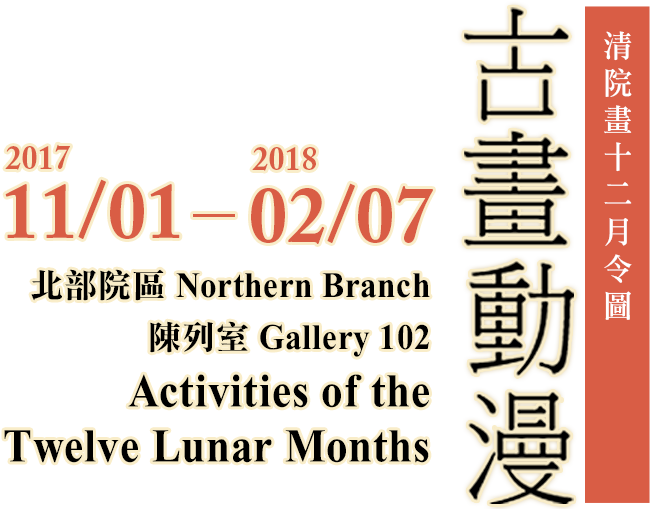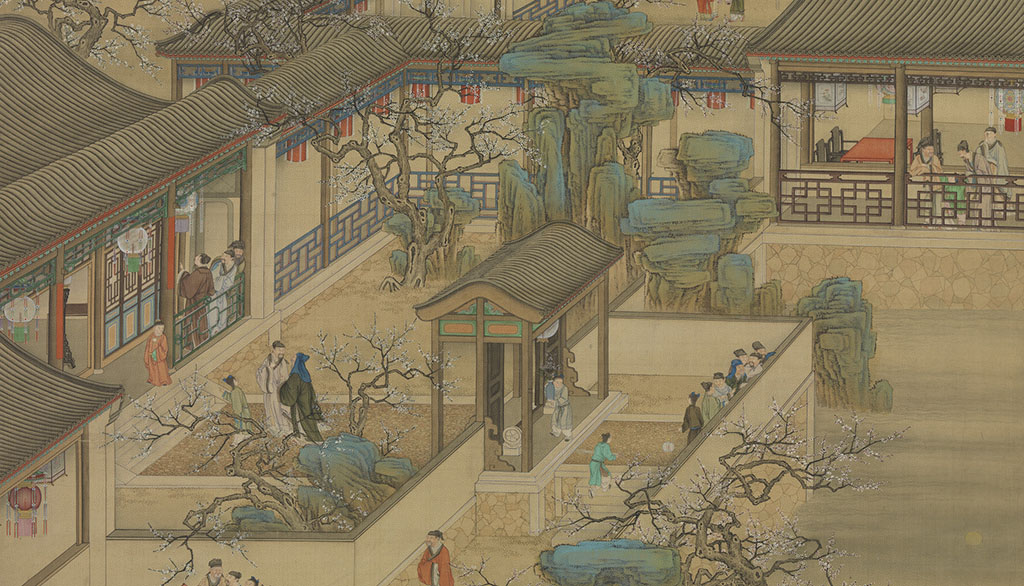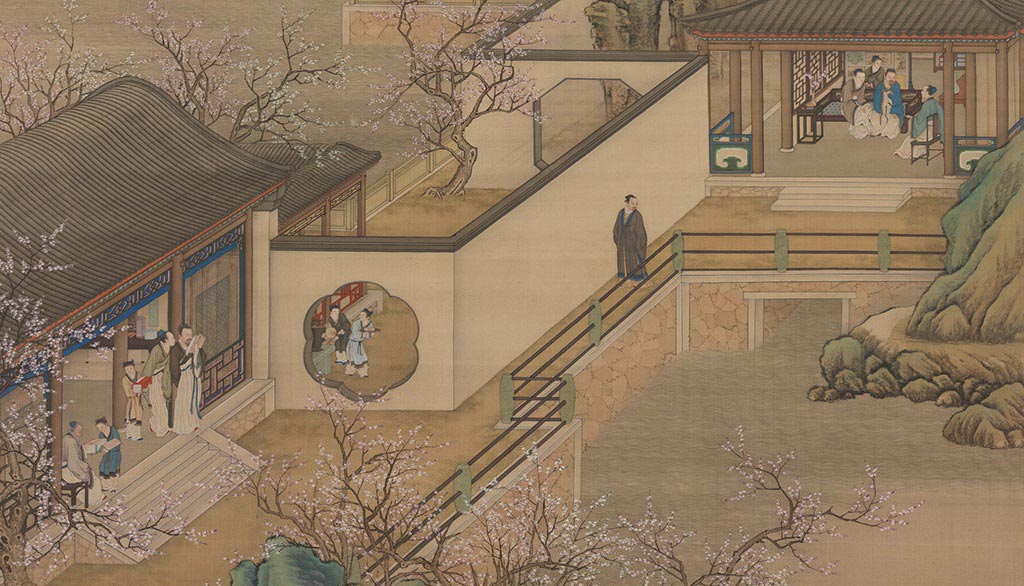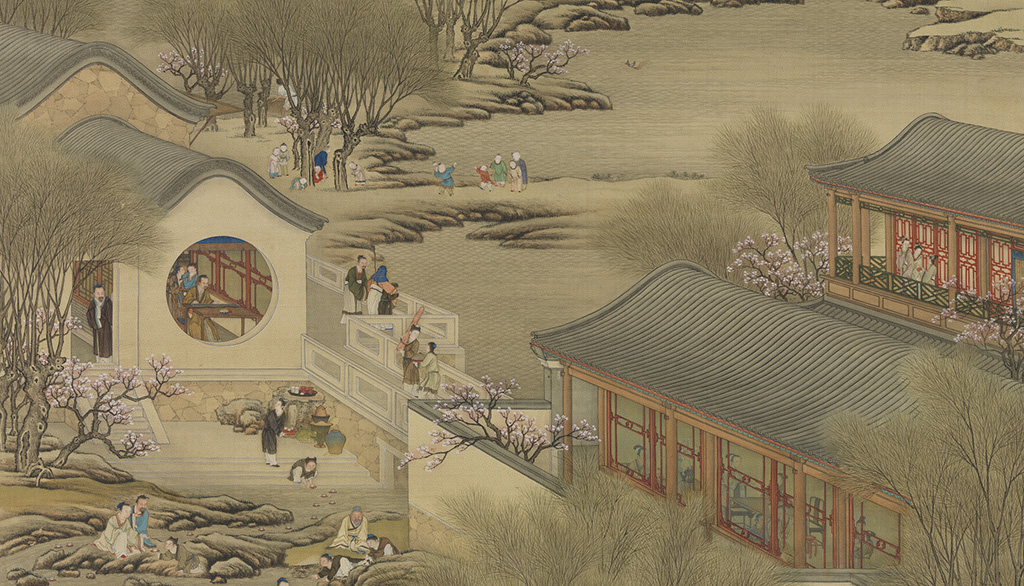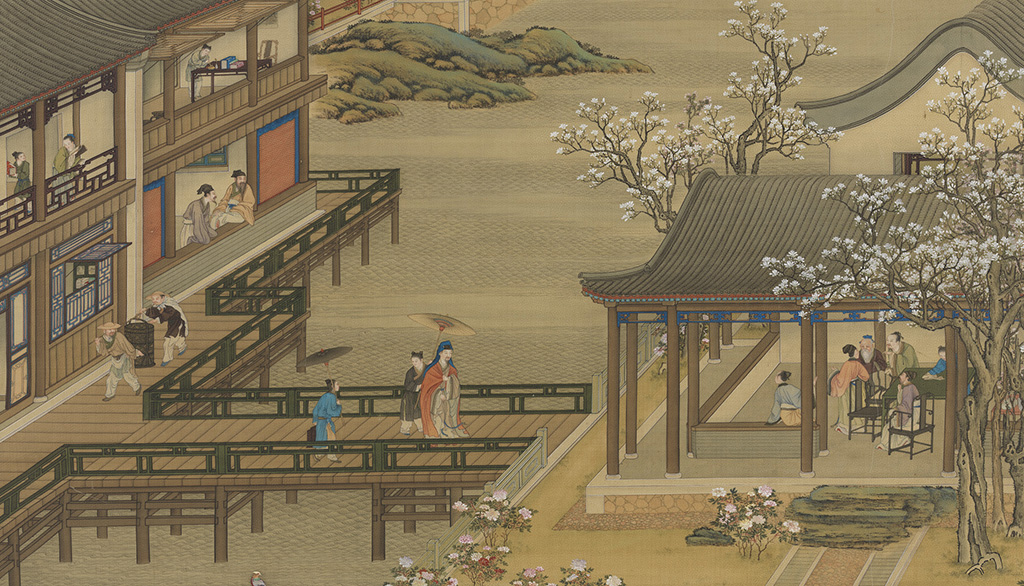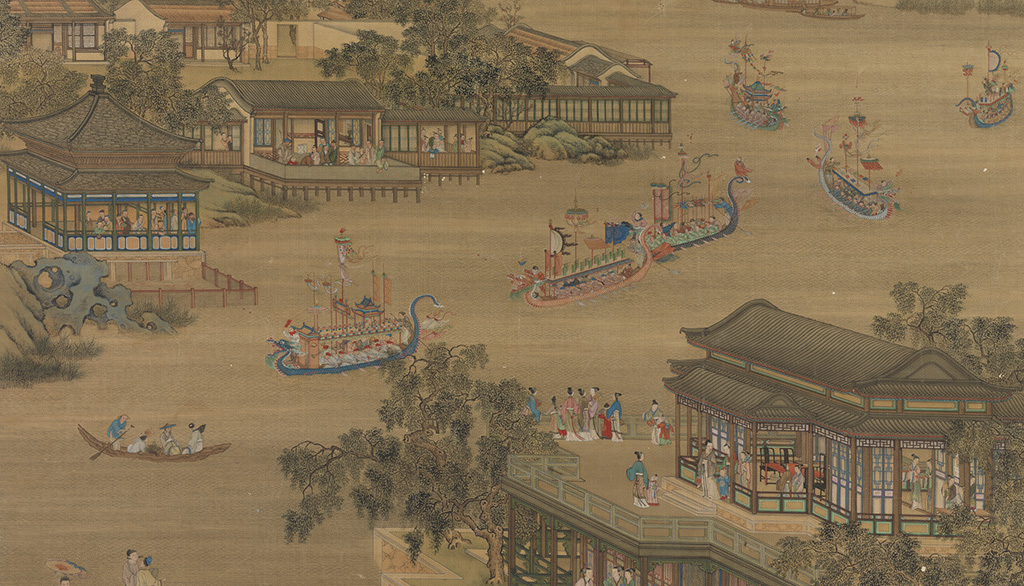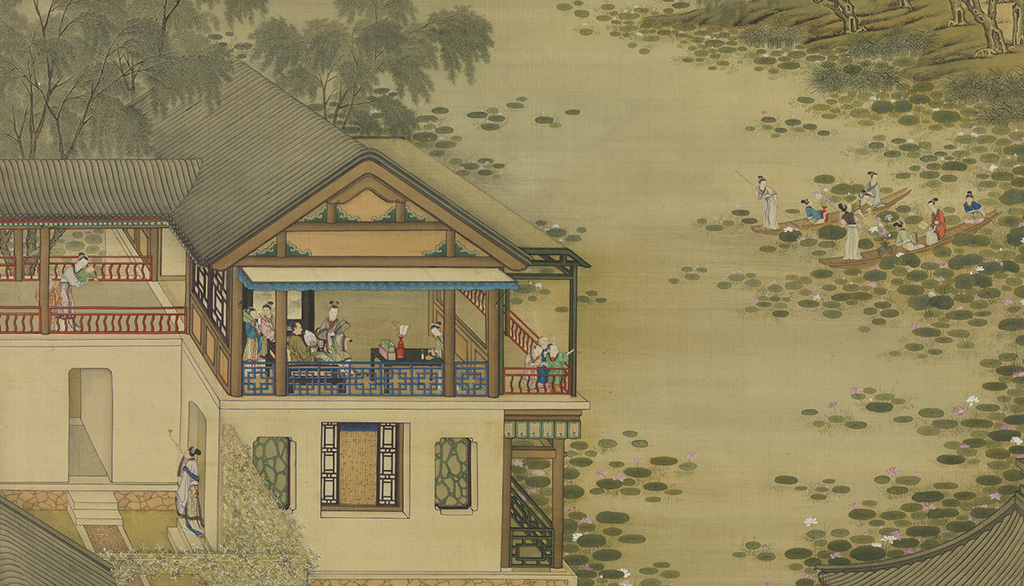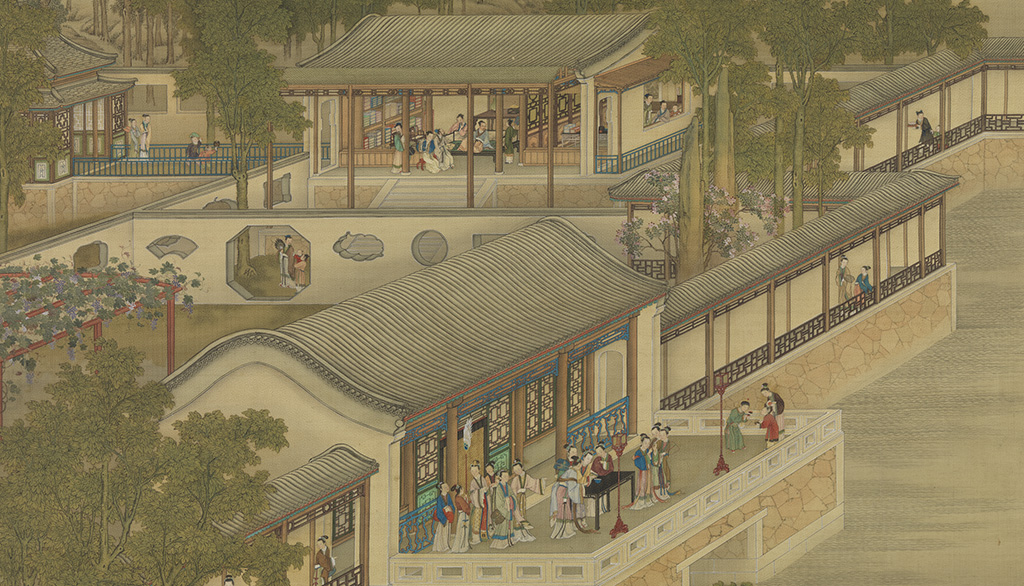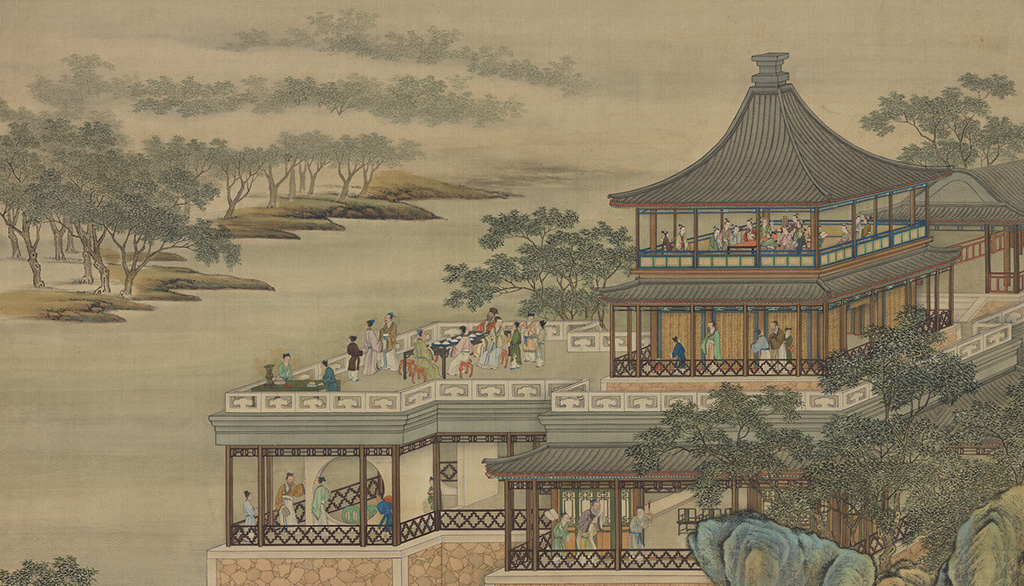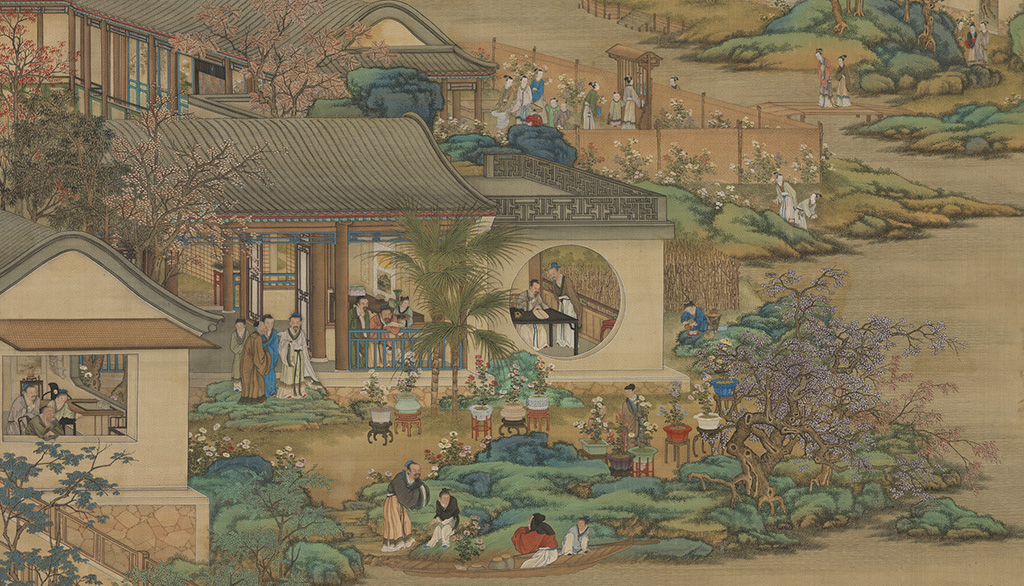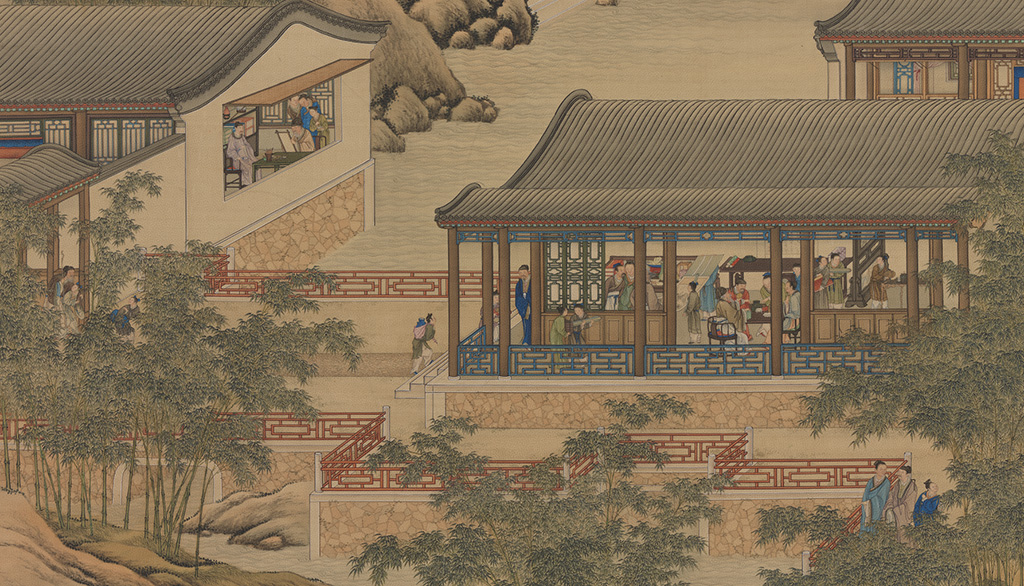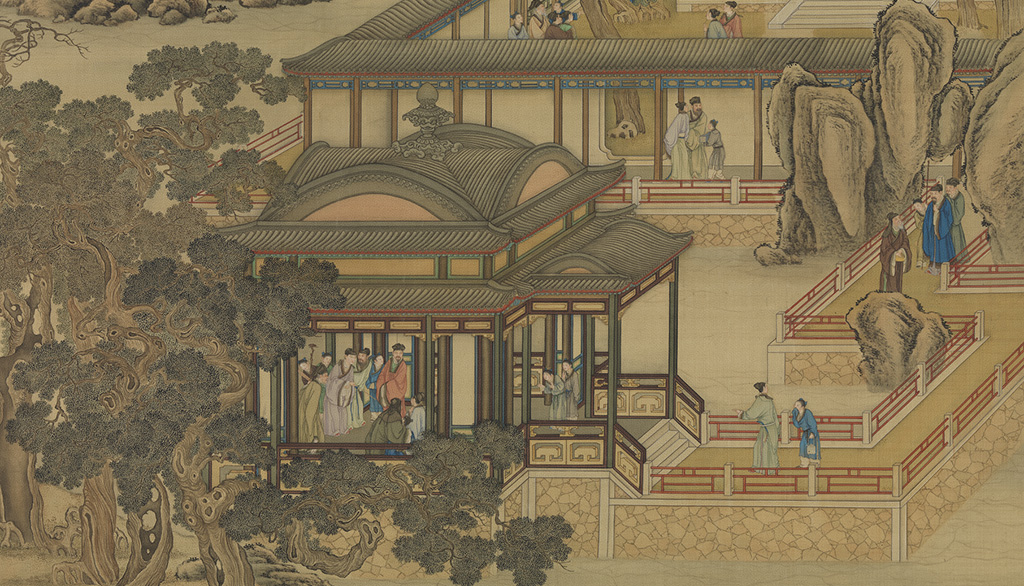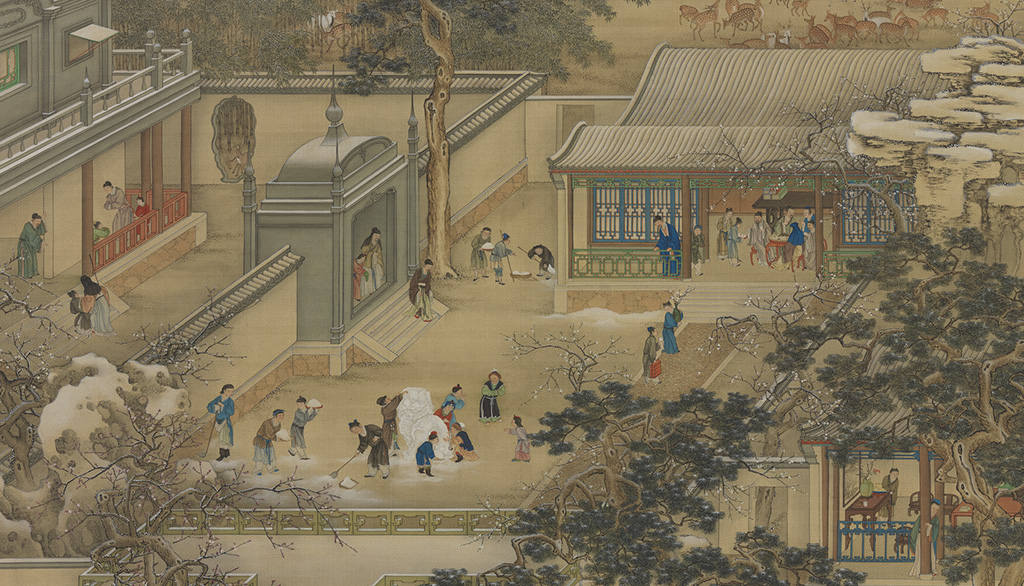Since 2011, the National Palace Museum initiated a series of six high-resolution long scroll painting animations. Using the latest technology, several high-resolution 1080 HD projectors seamlessly unfold sceneries from classical long scroll paintings on the wall. The painting animation series reproduces nine popular paintings and calligraphy, including Along the River During Qingming (Qing court artists), Spring Morning in the Han Palace (Qiu Ying), Imitating Zhao Bosu's Latter Ode on the Red Cliff (Wen Zhengming), Syzygy of the Sun, Moon, and Five Planets (Xu Yang), Departure Herald (Anonymous), Return Clearing (Anonymous) and Activities of the Twelve Lunar Months (Qing court artists), One Hundred Horses (Giuseppe Castligione), The Cold Food Observance (Su Shi), Poem in Seven-character Verse (Huang Tingjian). Inspired by historical material related to the artworks, the animations faithfully present the true spirit of the original paintings and their most attractive parts. A fascinating feature of the long scroll painting is its ability to simultaneously manifest chronological continuity and segmentation. As a result of the unique painting scale and traditional right to left reading direction, painting compositions unfurl accordingly and emphasize horizontal relationships. Oftentimes, scenes occurring at different points in time were depicted on a single scroll.
Introduction
Film Summary
Activities of the Twelve Lunar Months
- Anonymous court artists, Qing dynasty (1644-1911)
- Set of twelve hanging scroll paintings
This work is made up of twelve genre paintings spanning the period of a year, each one showcasing a different month with a wide range of natural phenomena and folk customs associated with it. Although the works are anonymous and undated, scholars have determined that they are most likely from the early years of the Qianlong Emperor's reign in the eighteenth century and probably completed by several palace painters. The scenes depicted are extremely rich and the objects rendered in great detail. Each painting adoptsWestern-style perspective, which helps to create scenarios that appear more lifelike. In the bottom left or right corner of the paintings are courtyard buildings extending into the distance with small groups of people engaged in various activities.
The Chinese term for monthly activities, yueling, originally referred to government orders that were issued every month. The term only started to become widely used for the titles of paintings in the Ming and Qing dynasties, at which point it generally indicated seasonal activities. Different plants grow at different times of the year, such as plum blossoms in January, apricot blossoms in February, peach blossoms in March, calamus in May, lilies in June, and chrysanthemums in September. People also engage in various activities throughout the year. In the first month of the lunar calendar, they hang lanterns, in the fifth month they race dragon boats, in the seventh month they celebrate Weaving Day, in the eighth month they appreciate the moon, in the ninth month they climb mountains, and in the twelfth month they go ice sledding.
These twelve paintings once hung in the Qianlong Emperor's palace, one displayed with the passage of each month. Enjoying the exquisite natural scenes showcased in these works, it can sometimes seem as if the viewer is transported there to take part in the various activities that the people are depicted as enjoying.
